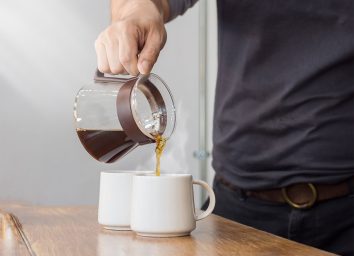7 Warning Signs You're Drinking Too Much Coffee
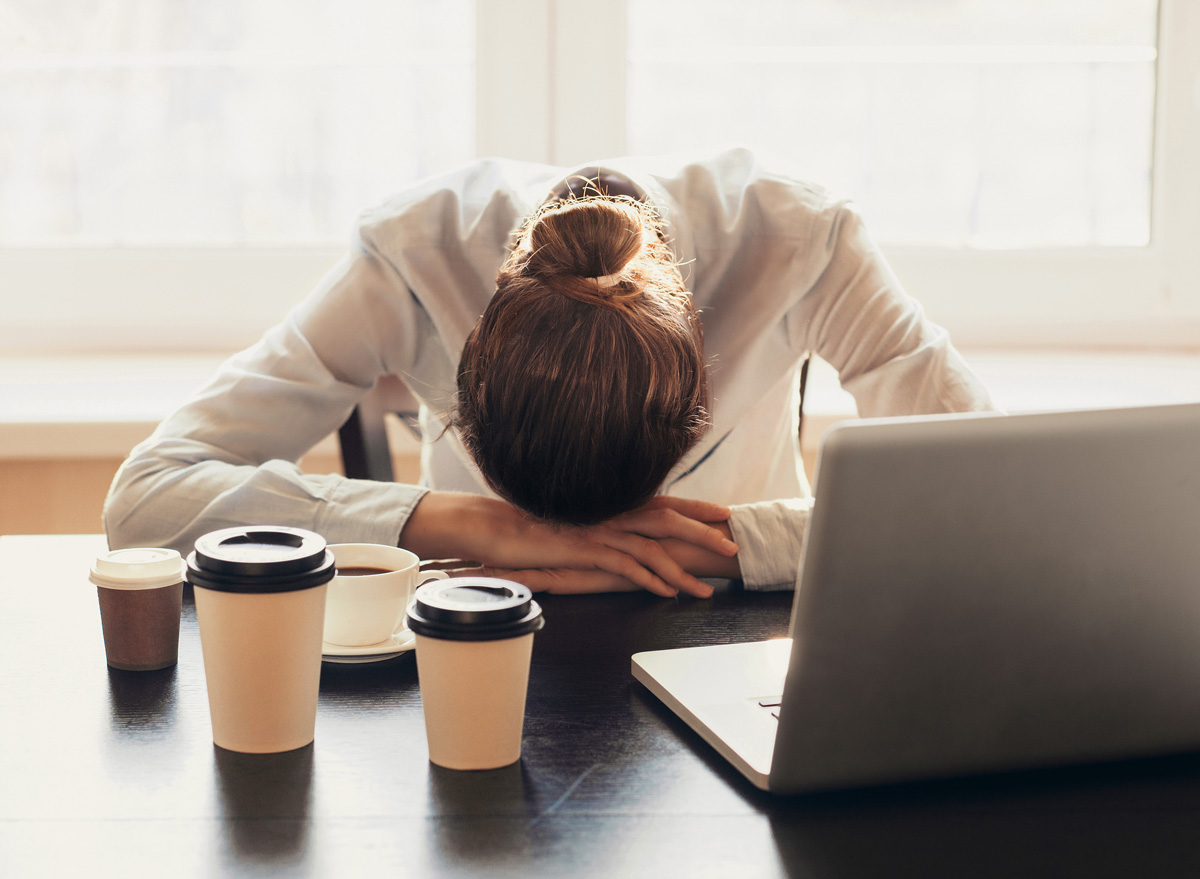
With most of the world still spending a ton of time at home, you might be drinking more coffee than you ever have before—throughout the entire day instead of just the morning. But is there such a thing as drinking too much coffee?
According to a Statista survey of over 800 American coffee drinkers, 29 percent of respondents consumed an average of two cups of coffee per day at home. While that seems like a reasonable amount, not everyone limits themselves to just two cups. In fact, a larger 36 percent of respondents consume more than 3 cups per day, with 9 percent of coffee drinkers drinking 6 or more cups. So what does the caffeine content look for something like that?
With roughly 95 milligrams of caffeine per 8-ounce cup, you'd be consuming 570 milligrams of caffeine per day if you had 6 cups of coffee. If your "cup" of coffee is more like the standard 12-ounce serving you get at coffee shops, you're actually looking at consuming over 850 milligrams of caffeine daily.
While there are benefits of moderate coffee consumption, research shows that drinking between 500 to 600 milligrams of caffeine (four to seven cups of coffee) and more can pose a health risk—and is actually considered abuse. Sustained abuse can lead to a condition known as "caffeinism," which can cause restlessness, anxiety, irritability, agitation, muscle tremors, insomnia, headaches, cardiovascular symptoms (e.g. tachycardia, arrhythmia), and gastrointestinal complaints (e.g. nausea).
"An average of 400 milligrams of caffeine, or roughly the amount in four cups of coffee is generally safe for most adults. While drinking moderate amounts of coffee throughout the day is generally not harmful for your health, there are some aspects to be aware of if you are increasing your coffee intake," says Patricia Bannan, MS, RDN, nationally recognized nutritionist and healthy eating expert.
So what exactly are the signs you might be sipping on a little too much coffee? We rounded up the evidence for you. And in case you were wondering, here's exactly What Happens to Your Body When You Stop Drinking Coffee.
You're starting to develop unwanted symptoms.
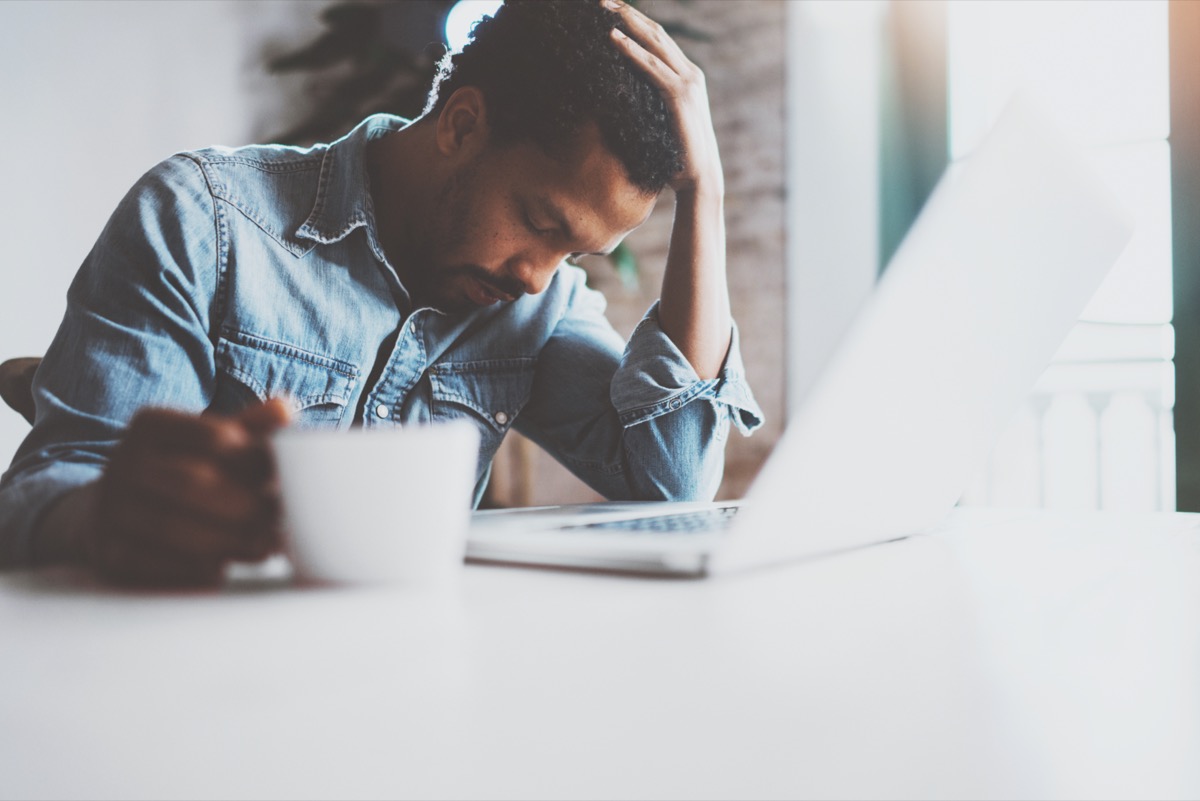
If you're starting to feel an onslaught of unpleasant feelings, don't think you're suddenly falling ill. There's a good chance it's all thanks to the amount of caffeine you're getting from all the coffee you're drinking.
"Higher amounts of caffeine intake can cause certain unwanted symptoms such as headaches, fast heartbeat, or irritability," says Bannan. "If you experience any of these symptoms, it may be a good idea to cut back on how much coffee you are drinking."
You're not sleeping well.
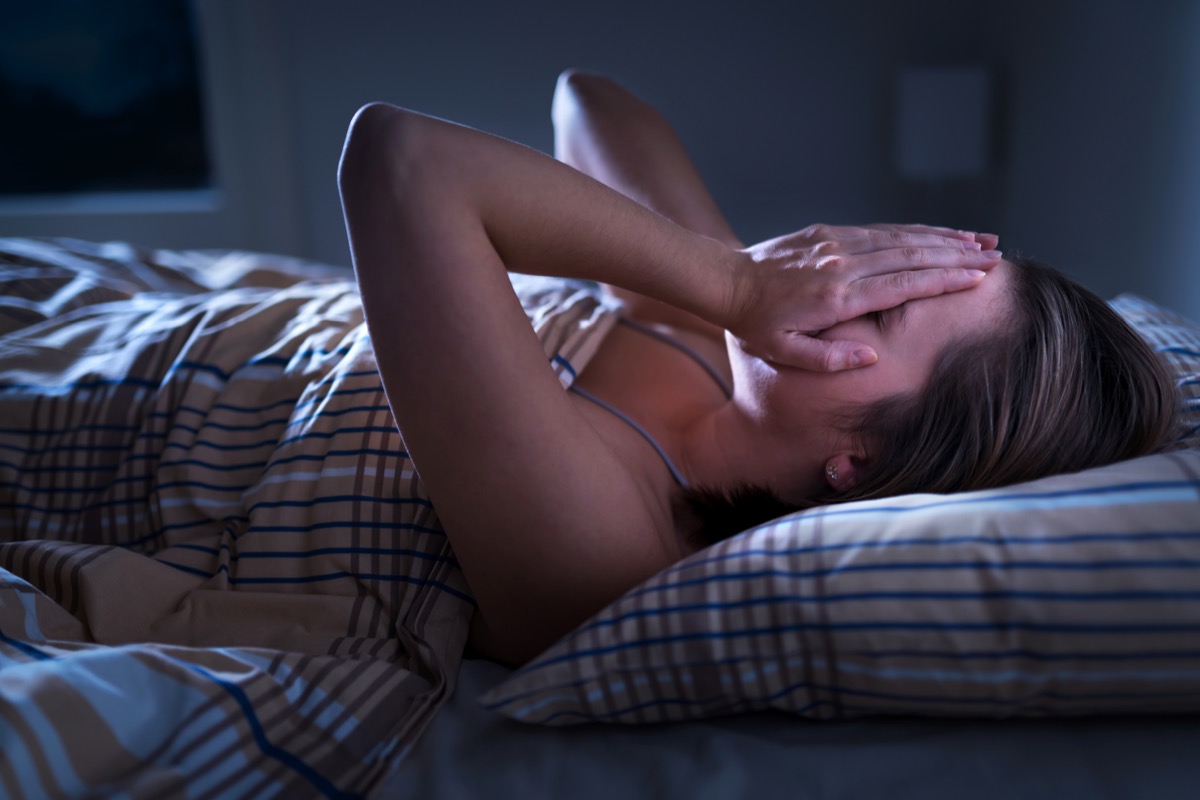
If you've suddenly started sipping on coffee later in the evening and then find yourself not able to enjoy a solid night's sleep, you might want to rethink your coffee consumption habits.
"Drinking coffee too close to bedtime, or using it to compensate for not getting enough sleep can impact your overall sleep pattern, and thus your health overall," Bannan says. "Caffeine can stay in your body for up to three to five hours, so drinking an afternoon cup can still affect your sleep once bedtime comes. One study found that drinking the equivalent of a double espresso can delay your circadian rhythm by 40 minutes."
Making sure you sleep enough each night is crucial as "getting enough quality sleep each night can help reduce the risk of diabetes, obesity, and high blood pressure," according to Bannan.
"If you still want to enjoy a cup of coffee later in the day, it may be helpful to switch to decaf once the afternoon hits or an herbal tea instead. Opt for a cup of white or green tea, which both have lower amounts of caffeine than coffee," she says.
You don't have as much energy.
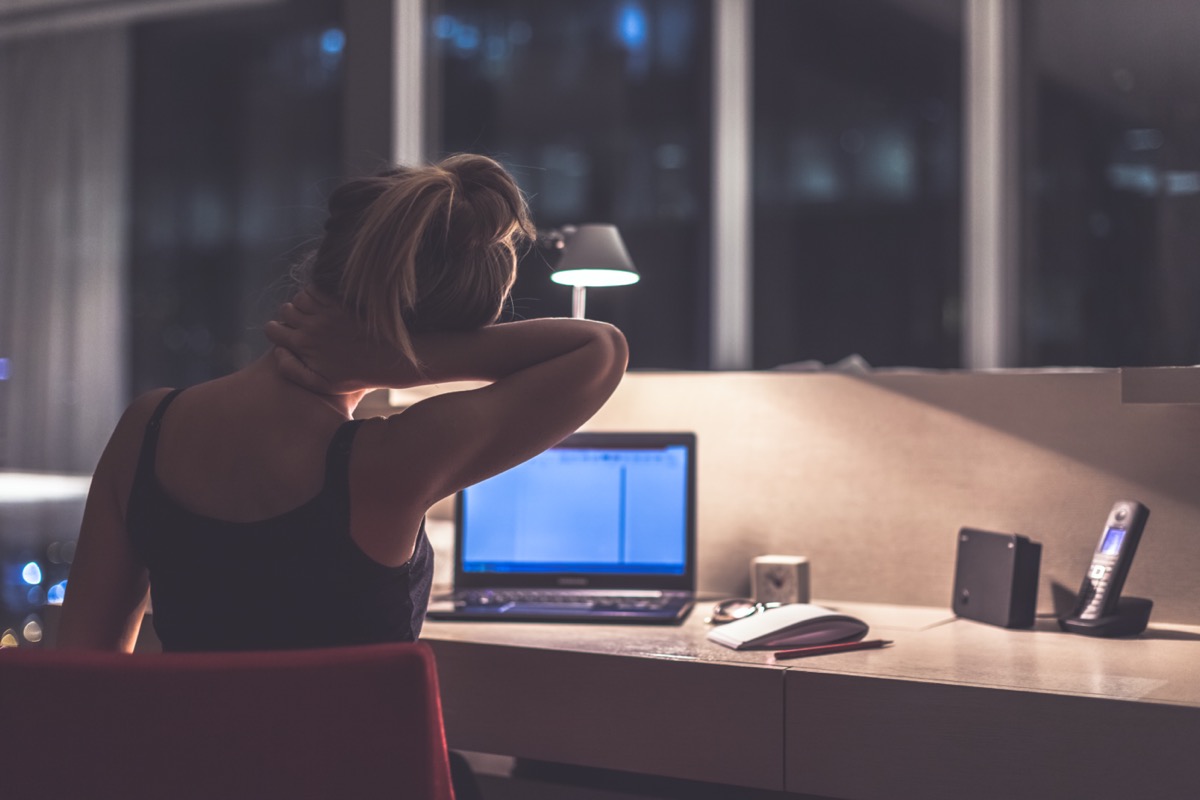
You might be turning to coffee for as the main pick-me-up, but it could actually be draining you of your energy. See, if you keep turning to coffee for that burst of energy (thanks to the caffeine), it—as you already learned—messes with your sleep schedule, so you'll wake up feeling more tired. This then continues the cycle, and you'll end up feeling less energized throughout the day.
You're suffering from heartburn.
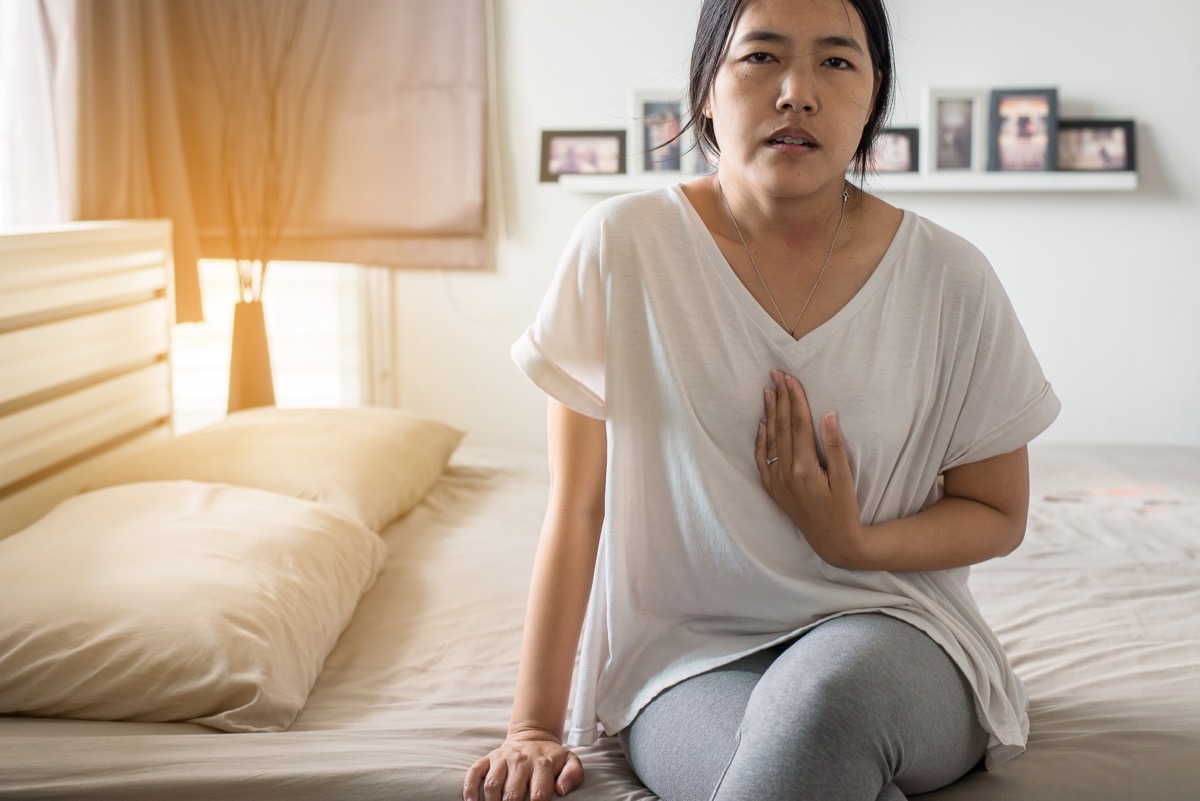
Coffee is one of those drinks that is acidic, so it can irritate the lining of your gut and cause heartburn. If you're already someone who deals with acid reflux and you're drinking more coffee throughout the day, it could be the culprit behind the surge in heartburn.
You have an upset stomach.

Along with heartburn, any stomach aches or nausea you're experiencing could be because of all the coffee you're drinking, especially if you're drinking it all on an empty stomach.
You're more stressed.
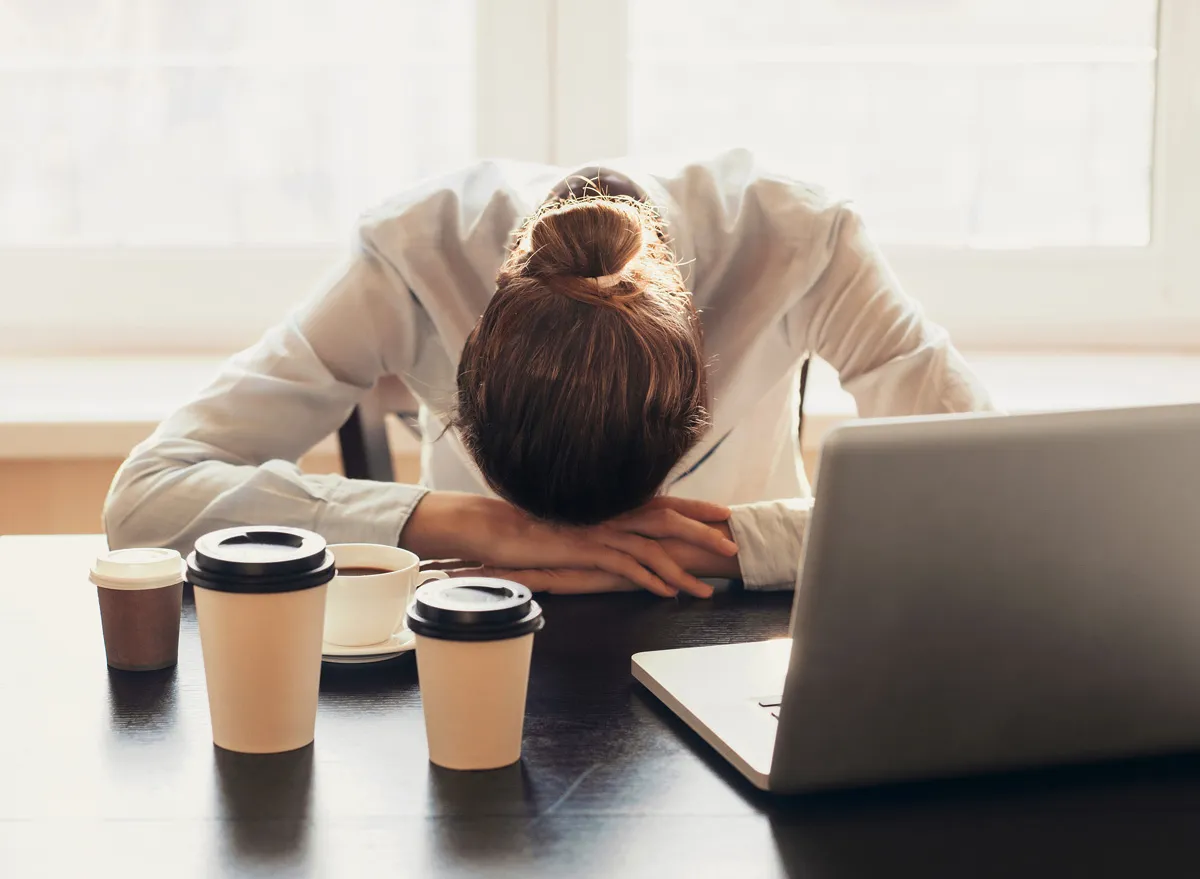
It's understandable that you're feeling more stress right now, but the large cups of coffee you're downing all day might just be making it worse. See, thanks to—you guessed it—all that caffeine, cortisol levels (aka the body's main stress hormone) could be rising. And along with reducing your coffee consumption, we have plenty of other easy ways to lower cortisol levels so you don't feel as stressed.
You're dehydrated.
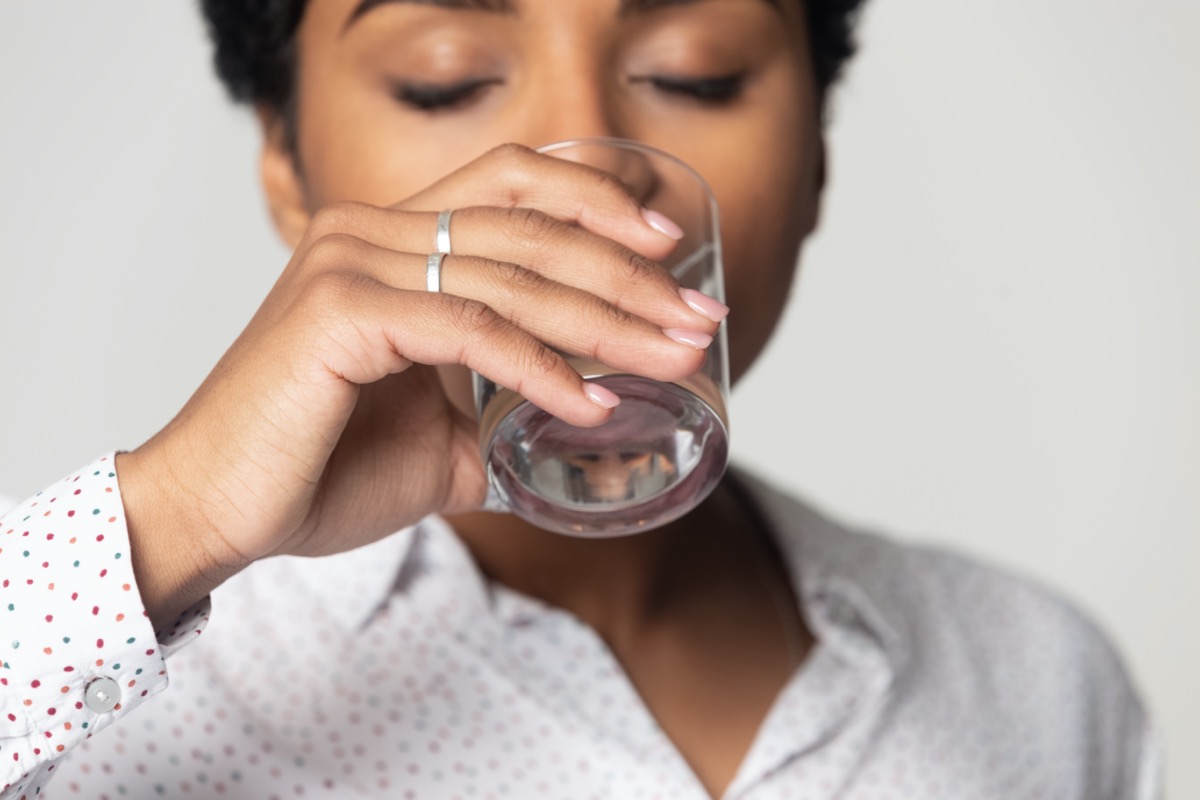
If you find yourself feeling more thirsty with the more coffee you're drinking, there is a connection there! According to a French study, caffeine has a diuretic effect, which can impact hydration. You would have to be drinking a large amount of coffee to get to this point though, as another study shows that moderate caffeine consumption (that baseline of four cups) doesn't impact your risk of dehydration. If you are drinking tons of coffee to the point that you are experiencing dehydration though, be sure to swap some of those cups for some water.

